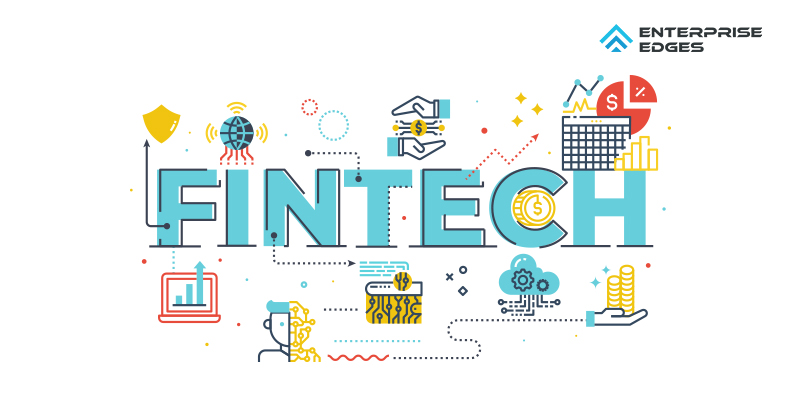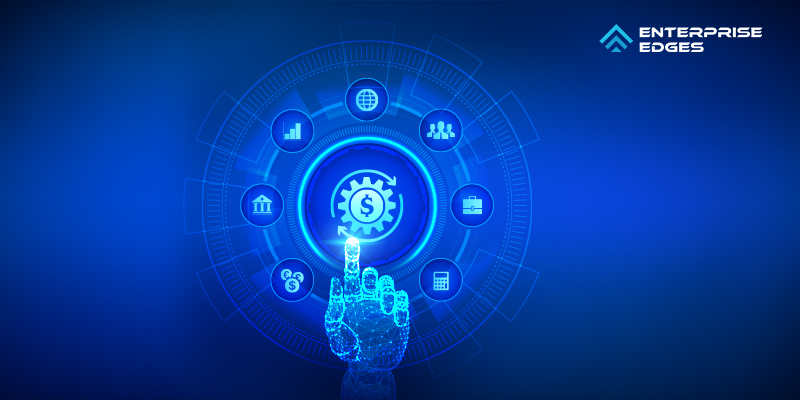What is FinTech?
FinTech is not only an abbreviation for Financial Technology but also refers to an innovative technology used for providing improved financial services that are compatible with the latest technological trends.

Now, that every business is going digital, and the number of digital transactions is on a rise, more than ever, FinTech firms and financial innovators are creating innovative ways of interacting with customers to extend banking services, especially for GenZ and millennials.
The future of the banking sector is no more restricted to brick-and-mortar firms working off traditional methods and in-person consultation. Banking applications, online payment gateways, and digital wallet systems are some of the classic examples of FinTech development.
FinTech Revolution
The FinTech sector is booming with the rise of digitalization. This growth of FinTech is being applauded by the banking industry for its improved efficiency and lower costs, both for its consumers and financial services providers. It promotes the use of digital technology and pushes start-ups and new market entrants to innovate products and services that can easily be accessed by consumers and retail banking companies. These indigenous firms and start-ups in turn contribute to the development of this massive industry.

The rapid growth of FinTech in the last few years has changed the way people execute daily transactions or handle their cash transactions. It is helping cash-driven nations become cashless societies.
Listed are the top 5 FinTech trends that will likely shape the future of banking sector.
1. Payment Services
Nowadays people are less interested in traditional services that banks provide. FinTech in banking has largely impacted how payments are made and the way transactions are carried out. Most payments are now done online via internet banking, or via smartphones, eliminating the need to visit branches physically for such menial tasks.
Such types of virtual payments have reduced the use of physical payment methods such as debit and credit cards or use of cash – thus creating a convenient and brisk experience. These digital transactions also help in data collection, which can later be used to offer new and personalized products and services. Hence, FinTech will help the banking industry to build cost-effective set-ups for businesses and generate new revenue streams through virtual payments.
2. Improved Customer Service

FinTech incorporates digital trends to live up to customers’ satisfaction and empowers them digitally. It is necessary for banks to focus on ensuring the security of transactions, data, and privacy of their customers, especially when the systems are prone to cyber-attacks.
Hence, constant communication and consumer education are imperative. FinTech will provide bank’s consumers with 24/7 access to its services, thus building transparent communication channels. An active communication involves regular updates via emails or text messages, sharing information regarding a change in banking and other policies, improved customer service, etc.
Improved communication will also make it easier for customers to understand how their accounts are being handled, be it savings or current accounts, Demat accounts, insurance, mutual funds, etc.
3. Smart Solutions
Today, the banking sector is experiencing the ever-growing need for solutions that are quick, flexible, and robust. The banking industry relies on FinTech firms to look into this urgent and focused need of customers. FinTech has started developing highly robust and effective solutions for banks for their offerings such as loans, remittance transfers, and insurance services.
Remittance services have been expensive for years, but FinTech solutions are making international money transfer swift, cost-effective, and accessible to more consumers than ever. Insurance applications and payment of premiums are no longer paper-extensive services. FinTech has made these procedures less complex, and it is all available on the internet with customization.
4. Enhanced Reachability
The FinTech market is known for its cutting-edge technology, and working towards creating tailored options for their end-users and consumers. FinTech in banking puts data analytics to use for offering customized financial services to customers, ensuring complete execution over the web and mobile devices.
Banks are now focused on utilizing the latest technologies to upgrade their strategies. For example, APIs (Application Program Interfaces) have become a necessary tool for open banking solutions. This indicates the importance of Fintech in Banking and other financial sectors.
5. Blockchain and Big Data

Blockchain and big data are complementary technologies playing a major role in the FinTech revolution. The shared infrastructure of Blockchain enables the distribution of control among all the peers in a transaction chain, eliminating the need for a trusted third party.
The inherently secure and decentralized nature of Blockchain technology will help in reducing fraudulent activities, phishing attacks and will ensure secure payments. Big data with Artificial Intelligence (AI) and Machine Learning (ML) will help monitor risks on transactions for an efficient banking experience, define customer preferences and help offer customized products and services, and much more.
Conclusion
As technology is evolving, so will the fintech sector and other sectors. FinTech will change the banking norms by providing the best consumer experience backed by robust technology. Moreover, for those businesses, who want a competitive edge and offer the latest products, they’ll have no option, but to evolve as the technology evolves.
